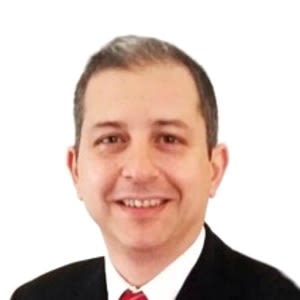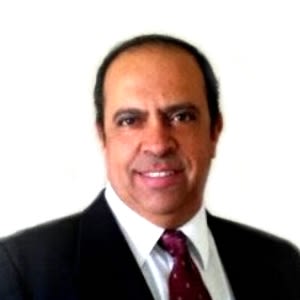






Hellenic Practice
Verified Center
This provider's information has been quality-checked by Recovery.com's Research Team for accuracy and completeness, including center verification through appropriate third-party organizations.
Treatment Focus
This center treats substance use disorders and mental health conditions. You'll receive individualized care catered to your unique situation and diagnosis, learn practical skills for recovery, and make new connections in a restorative environment.
Primary Level of Care
Offering intensive care with 24/7 monitoring, residential treatment is typically 30 days and can cover multiple levels of care. Length can range from 14 to 90 days typically.
Treatment Focus
This center treats substance use disorders and mental health conditions. You'll receive individualized care catered to your unique situation and diagnosis, learn practical skills for recovery, and make new connections in a restorative environment.
Primary Level of Care
Offering intensive care with 24/7 monitoring, residential treatment is typically 30 days and can cover multiple levels of care. Length can range from 14 to 90 days typically.
Private Pay
You pay directly for treatment out of pocket. This approach can offer enhanced privacy and flexibility, without involving insurance. Exact costs vary based on program and length of stay. Contact the center for specific details.
Hellenic Practice
Hellenic Practice
About Hellenic Practice
Hellenic Practice’s mission is to help save lives and end addiction. They seek to enrich people’s lives through the inspiring and healing power of professional rehabilitation practices. Hellenic Practice interprets the term rehabilitation as a passionate practice that includes medical detoxification, nutrition, physical activity, meditation, and social balance. They believe all are important factors in the human process of self-realization.
Expert Multidisciplinary Team
Hellenic Practice’s team has over 30 experts from a variety of health-related and business fields. Their entire team believes in changing the world for a better, healthier and fair future as more and more passionate health care professionals and enthusiasts are joining in the mission. Hellenic’s team and treatment program take an educational and holistic approach, healing the body along with the mind and spirit. To do this, they prioritize great nutrition, physical exercise, and a variety of therapy modalities.
Integrative, Luxury Care
Detox typically lasts 3-7 days at Hellenic Practice. To minimize discomfort and maximize safety, clients are medically monitored throughout their stay, with options available to increase comfort. Clients have the opportunity to stay in impressive homes, two of which are the Aphrodite Mansion and the Zeus top estate. Aphrodite houses just one client at a time in stunning luxury, with a jacuzzi, pool, nearby beaches, cleaning services, and a private chef. Zeus also houses one client at a time, providing 4 floors of opulent and luxury accomodations including a superb swimming pool, private gym, gardens, private garage, state of the art equipment and appliances, and an elevator for comfortable mobility. Other options include the Apollo, a luxury singular suite, and their Athena detox unit which can host up to 10 clients. Treatment services take place in Hellenic’s homes in an effort to enhance clients’ comfort and privacy. Or, if clients prefer, Hellenic Practice can go sea-bound in a luxury yacht and provide treatment on the Mediterranean Sea.
A Mission for Healing
Hellenic Practice uses their revenue to help cover expenses of the program, with revenue surplus specifically set aside to partially or fully cover the expenses of those who may need financial support. Their program is based in Athens, Greece, in the seaside town of Boula, which is an upscale residential town 20km from downtown Athens and just 15km from the airport.

Center Overview
Treatment Focus
This center treats substance use disorders and mental health conditions. You'll receive individualized care catered to your unique situation and diagnosis, learn practical skills for recovery, and make new connections in a restorative environment.
Pricing and Program Length
Estimated Center Costs
The cost listed here (€5,995 - €75,000/month), is an estimate of program cost. Center price can vary based on program and length of stay. Contact the center for more information. Recovery.com strives for price transparency so you can make an informed decision.
Luxury rehab centers offer a unique blend of luxurious amenities and high-quality treatment. From private suites to gourmet dining, personal trainers to spa treatments, these facilities provide a high level of comfort and discretion.

Meet Your Care Team

Rick Xatziou
CEO

Dr. Edgardo Gonzalez
Director
The American Board of Surgical Assistants

Dr. Ioannis Velentzas
Psychiatrist & Neurologist
PhD

Dr. Iota Afentaouly
Psychologist - Neurologist
PhD

Violeta Anninou
Nutritionist
PhD

Hlias Rouiz
Personal Trainer & Spiritual Counselor

George Vassiliou
Psychologist, Personal trainer & Supplementation Counselor

Kostantina Manzika
Dancing Teacher, Yoga & Tai Chi instructor

Stella Tsenga
Paramedic Nurse

Gian Petrucci
Program Assistant

Anna Xistopoulou
Public Realtions

Tasos Kalaitzis
Music Teacher

Raul Ramirez
Public Relations




Levels of Care








Your Care Options
Specializations
Alcohol
Using alcohol as a coping mechanism, or drinking excessively throughout the week, signals an alcohol use disorder.
Anxiety
Anxiety is a common mental health condition that can include excessive worry, panic attacks, physical tension, and increased blood pressure.
Cocaine
Cocaine is a stimulant with euphoric effects. Agitation, muscle ticks, psychosis, and heart issues are common symptoms of cocaine abuse.
Drug Addiction
Drug addiction is the excessive and repetitive use of substances, despite harmful consequences to a person's life, health, and relationships.
Holistic
A non-medicinal, wellness-focused approach that aims to align the mind, body, and spirit for deep and lasting healing.
Who We Treat
Adolescents
Teens receive the treatment they need for mental health disorders and addiction, with the added support of educational and vocational services.
Children
Treatment for children incorporates the psychiatric care they need and education, often led by on-site teachers to keep children on track with school.
Executives
Executive treatment programs typically directly support the needs of people who manage businesses and may provide flexible schedules and office space to allow work during treatment.
Young Adults
Emerging adults ages 18-25 receive treatment catered to the unique challenges of early adulthood, like college, risky behaviors, and vocational struggles.
Men and Women
Men and women attend treatment for addiction in a co-ed setting, going to therapy groups together to share experiences, struggles, and successes.
Midlife Adults
For adults ages 40+, treatment shifts to focus on the unique challenges, blocks, and risk factors of their age group, and unites peers in a similar community.
Professionals
Busy, high-ranking professionals get the personalized treatment they need with greater accommodations for work, privacy, and outside communication.
Approaches
Spiritual Emphasis
Spirituality connects patients to a higher power and helps strengthen their recovery, hope, and compliance with other treatment modalities.
Holistic
A non-medicinal, wellness-focused approach that aims to align the mind, body, and spirit for deep and lasting healing.
Medical
Medical addiction treatment uses approved medications to manage withdrawals and cravings, and to treat contributing mental health conditions.
Non 12 Step
Non-12-Step philosophies veer from the spiritual focus of the 12-Steps and instead treat the disease of addiction with holistic or secular modalities.
Therapies
1-on-1 Counseling
Patient and therapist meet 1-on-1 to work through difficult emotions and behavioral challenges in a personal, private setting.
Adventure Therapy
This experiential approach uses the physical and emotional challenges of outdoor activities as tools for personal growth.
Aromatherapy
Inhaling or topically applying essential oils can help relieve stress, soothe pains, and relieve emotional distress.
Art Therapy
Visual art invites patients to examine the emotions within their work, focusing on the process of creativity and its gentle therapeutic power.
Dance Therapy
This experiential therapy uses dance to improve body awareness, physical health, and social skills.
Family Therapy
Family therapy addresses group dynamics within a family system, with a focus on improving communication and interrupting unhealthy relationship patterns.
Horticultural Therapy
Gardening can be both meditative and inspiring. This therapy encourages social, emotional, and physical recovery.
Massage Therapy
Massage therapy relieves physical and emotional tension, reduces pain, promotes relaxation, and improves emotion regulation.
Conditions We Treat
Pornography Addiction
A person with a porn addiction is emotionally dependent on pornography to the point that it interferes with their daily life and relationships.
Personality Disorders
Personality disorders destabilize the way a person thinks, feels, and behaves. If untreated, they can undermine relationships and lead to severe distress.
ADHD, ADD
ADHD is a common mental health condition caused by dopamine imbalance. Common symptoms include inattention, hyperactivitiy, and impulsivity.
Anger
Although anger itself isn't a disorder, it can get out of hand. If this feeling interferes with your relationships and daily functioning, treatment can help.
Anxiety
Anxiety is a common mental health condition that can include excessive worry, panic attacks, physical tension, and increased blood pressure.
Bipolar
This mental health condition is characterized by extreme mood swings between depression, mania, and remission.
Burnout
Burnout entails mental and physical exhaustion, and leads to a severe lack of fulfillment. This condition is often caused by overwork.
Chronic Pain Management
Long-term physical pain can have an affect on mental health. Without support, it can also impact your daily life and even lead to addiction.
Codependency
Codependency is a pattern of emotional dependence and controlling behavior. It's most common among people with addicted loved ones.
Substances We Treat
Alcohol
Using alcohol as a coping mechanism, or drinking excessively throughout the week, signals an alcohol use disorder.
Benzodiazepines
Benzodiazepines are prescribed to treat anxiety and sleep issues. They are highly habit forming, and their abuse can cause mood changes and poor judgement.
Chronic Relapse
Consistent relapse occurs repeatedly, after partial recovery from addiction. This condition requires long-term treatment.
Co-Occurring Disorders
A person with multiple mental health diagnoses, such as addiction and depression, has co-occurring disorders also called dual diagnosis.
Cocaine
Cocaine is a stimulant with euphoric effects. Agitation, muscle ticks, psychosis, and heart issues are common symptoms of cocaine abuse.
Drug Addiction
Drug addiction is the excessive and repetitive use of substances, despite harmful consequences to a person's life, health, and relationships.
Ecstasy
Ecstasy is a stimulant that causes intense euphoria and heightened awareness. Abuse of this drug can trigger depression, insomnia, and memory problems.
Heroin
Heroin is a highly addictive and illegal opioid. It can cause insomnia, collapsed veins, heart issues, and additional mental health issues.
Psychedelics
Hallucinogenic drugs—like LSD—cause euphoria and increased sensory experiences. When abused, they can lead to depression and psychosis.
Languages
Aftercare
Care Designed for Your Needs
Personal Amenities
Amenities
Special Considerations
Clients can bring their own pet(s)
For greater comfort and healing, pet-friendly treatment centers welcome dogs and animal companions to stay with their owners while they attend treatment.
Couples program
Using gentle clinical care, therapists guide patients and their partner through guided sessions to address issues and work towards lasting solutions.
Executive Program
Addiction and mental health treatment for executives typically involves high discretion, greater technology access, and more private, 1-on-1 care.
Family Member Stays
Treatment providers welcome family members to stay on-site to better the experience and success of patients and their families as a whole.
Flexible technology policies
Centers with flexible technology policies allow professionals to stay in touch with work and give patients a greater sense of connection and normalcy.
Gender-specific groups
Patients in gender-specific groups gain the opportunity to discuss challenges unique to their gender in a comfortable, safe setting conducive to healing.
Activities
Yoga
Yoga is both a physical and spiritual practice. It includes a flow of movement, breathing techniques, and meditation.
Off-Site Activities
Yoga
Yoga is both a physical and spiritual practice. It includes a flow of movement, breathing techniques, and meditation.
Off-Site Amenities
What people are saying
Treatment
4.9
Accommodations
4.9
Food & Nutrition
4.8
Value
4.9
Pros
- Excellent & Effective Treatment Programming (9)
- Supportive Aftercare (8)
- Fun Activities (6)
- Beautiful Location (5)
Pangiota
Treatment in 2024 • (30 days) • Reviewed 12/15/24
Former Client
•Teacher
•Athens, Greece
Christos M
Treatment in 2023 • (30 days) • Reviewed 12/12/24
Loved One of a Former Client
•Athens
J.L
Treatment in 2023 • (30 days) • Reviewed 02/10/25
Former Client
•Entrepreneur
Vasilis G
Treatment in 2024 • (30 days) • Reviewed 12/20/24
Former Client
•Greece
N.Y.
Treatment in 2021 • (90 days) • Reviewed 09/20/22
Former Client
•Greece






